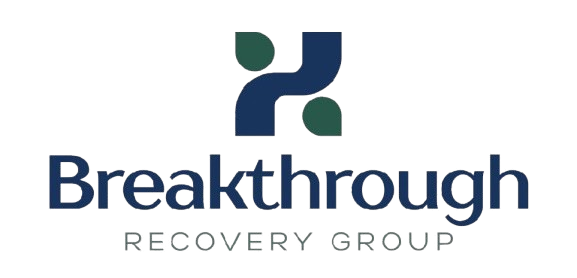Addiction is a pervasive and complex health issue that affects millions of individuals worldwide, profoundly altering lives, relationships, and communities. Whether stemming from substance use, behavioral patterns, or co-occurring disorders, addiction often isolates individuals, damages families, and leads to significant physical, emotional, and psychological harm. However, while addiction may seem insurmountable at times, with the right treatment and support from facilities like Spokane Comprehensive Treatment Centers, recovery is not only possible—it is achievable.
Breakthrough Recovery, based in Spokane, Washington, stand as a beacon of hope for individuals battling addiction. With an approach that integrates clinical expertise, compassion, and individualized care, these centers offer a pathway to recovery for those in need. This article will explore addiction’s complex nature, its impact on individuals and society, and how Spokane Comprehensive Treatment Centers play a crucial role in helping people regain control over their lives and break free from addiction.
What Is Addiction, and How Does It Affect Us?
Defining Addiction
At its core, addiction is more than just a series of poor decisions or a lack of willpower—it is a chronic disease that affects the brain’s reward system. Addiction hijacks the brain’s circuitry, affecting an individual’s behavior, motivation, and memory. It turns voluntary behaviors, such as substance use, into compulsions that continue despite negative consequences. Over time, these behaviors become ingrained and necessary for survival due to changes in brain chemistry, making it incredibly difficult for individuals to stop without professional help.
Risk Factors for Addiction
There is no single cause of addiction. Instead, a combination of biological, environmental, and psychological factors can increase an individual’s susceptibility to developing this disease. These factors are often interconnected and can create a perfect storm that leads to substance abuse and addiction.
- Biological Factors: Genetics plays a critical role in addiction. Those with a family history of addiction are more likely to develop the condition themselves. Additionally, underlying mental health disorders, such as depression or anxiety, can contribute to substance use as individuals may turn to drugs or alcohol to cope with their emotions.
- Environmental Factors: Exposure to drug use at a young age, living in high-stress environments, or lacking emotional support systems can create an environment conducive to addiction. Peer pressure, trauma, and living in communities with high substance abuse rates can also elevate the risk.
- Psychological Factors: Individuals who experience trauma, suffer from low self-esteem, or lack healthy coping mechanisms are more likely to turn to substances as a way of managing their emotions. These psychological stressors can often serve as triggers for addiction.
Common Substances of Abuse
Addiction manifests through the abuse of various substances. Some of the most commonly abused substances include:
- Opioids: Prescription painkillers, heroin, and fentanyl are some of the most dangerous drugs in circulation. They cause profound changes to the brain and pose an extreme risk of overdose.
- Alcohol: While legal, alcohol is one of the most widely abused substances. Chronic abuse can lead to severe liver damage, cognitive impairment, and dependence.
- Cocaine and Methamphetamine: Stimulants like cocaine and methamphetamine can create feelings of euphoria and energy, but they also cause severe physical damage, including heart problems and brain function impairment.
- Tobacco/Nicotine: Often underestimated, nicotine addiction is highly prevalent and linked to severe health issues like lung cancer, heart disease, and respiratory problems.
- Marijuana: While legal in some areas, excessive marijuana use can lead to dependency, cognitive decline, and mental health issues like anxiety or depression.
- Hallucinogens: Drugs like LSD, MDMA, and psilocybin mushrooms can cause temporary euphoria and altered perception but may also lead to paranoia, anxiety, or long-term mental health challenges.
Understanding these substances and their effects is essential to addressing the addiction epidemic and offering effective treatment options for those in need.

The Impact of Addiction
The effects of addiction are not limited to the individual; they reach far beyond personal health and wellbeing. Addiction can have devastating consequences that ripple throughout families, communities, and society at large.
Physical Health Consequences
Addiction takes a severe toll on the body. Chronic substance abuse can lead to long-term damage to vital organs, such as the liver, heart, and lungs. Brain function is also impaired, leading to memory loss, cognitive decline, and a reduction in motor skills. Opioid abuse, for example, significantly increases the risk of overdose and death, while alcohol and stimulant use can damage internal organs and weaken the immune system.
Mental Health Challenges
Addiction often coexists with mental health disorders such as depression, anxiety, and PTSD. The presence of both conditions is known as a dual diagnosis, and it can make treatment significantly more challenging. The relationship between addiction and mental health is cyclical: addiction can exacerbate existing mental health issues, and untreated mental health conditions can fuel substance abuse. Addressing both aspects is essential for successful long-term recovery.
Family and Community Strains
The impact of addiction is not just felt by the individual but extends to their family and community. Relationships become strained as trust is eroded and emotional support becomes difficult to provide. Loved ones may feel helpless, ashamed, or frustrated. Financial instability is often a consequence of addiction, as individuals prioritize obtaining substances over meeting basic needs. Families are often left to pick up the pieces, dealing with the emotional toll of addiction while also navigating their own personal challenges.
Seeking Help For Addiction
Breaking the Stigma
One of the largest barriers to seeking help for addiction is the stigma that surrounds it. Many individuals feel ashamed of their addiction and fear being judged by others. However, it is important to recognize that addiction is a medical condition that requires professional treatment, not punishment. Spokane Comprehensive Treatment Centers work diligently to break the stigma surrounding addiction by offering a judgment-free environment where individuals can access the care they need without fear of shame or ridicule.
Benefits of Professional Treatment
Seeking professional treatment is essential for breaking free from addiction. The benefits of professional addiction treatment include:
- Physical Stabilization: Professional detoxification services ensure that individuals can safely manage withdrawal symptoms. This process is crucial, as withdrawal from substances like alcohol or opioids can be life-threatening without medical supervision.
- Emotionally Grounded Support: Addiction often stems from or is exacerbated by underlying emotional struggles. Through therapies like cognitive-behavioral therapy (CBT) or dialectical behavior therapy (DBT), individuals can address the root causes of their addiction and develop healthier coping mechanisms.
- Long-Term Recovery Tools: Recovery is a lifelong process, and professional treatment provides the tools needed for long-term success. These include relapse prevention strategies, coping mechanisms, and aftercare planning to ensure continued support after treatment.
Reaching out for help is a powerful step toward recovery. It may feel intimidating or overwhelming, but it is ultimately a sign of strength, not weakness.
Spokane Comprehensive Treatment Centers: A Comprehensive Approach
Spokane Comprehensive Treatment Centers offer a well-rounded, holistic approach to addiction recovery. They understand that every person’s journey is unique and that there is no one-size-fits-all solution to overcoming addiction. By addressing all aspects of recovery—physical, emotional, psychological, and social—Spokane Comprehensive Treatment Centers provide comprehensive care that improves the chances of sustained recovery.
Core Services Provided
- Individualized Counseling: Personalized counseling sessions allow patients to work one-on-one with a therapist to uncover the underlying causes of their addiction, address trauma, and develop strategies tailored to their individual needs.
- Group Therapy: Addiction thrives in isolation, but group therapy offers a supportive community where individuals can share their experiences, gain insight from others, and feel understood. Group therapy helps break the silence around addiction and fosters a sense of belonging.
- Dual Diagnosis Treatment: Many individuals struggling with addiction also have co-occurring mental health disorders. Spokane Comprehensive Treatment Centers offer integrated care that treats both addiction and mental health conditions simultaneously, improving overall outcomes for patients.
- Aftercare Planning: Recovery does not end when treatment finishes. Aftercare planning helps individuals maintain sobriety and continue their healing journey through ongoing therapy, support groups, and community resources.
Why Choose Spokane Comprehensive Treatment Centers?
- Experienced and Compassionate Staff: The dedicated team of clinicians, counselors, and support staff work tirelessly to create a supportive and compassionate environment where patients feel valued and understood.
- Accessible Care: Located in Spokane, these centers provide accessible care for individuals across the region, ensuring that help is within reach for those who need it.
- Research-Driven Methods: The treatment methods employed at Spokane Comprehensive Treatment Centers are grounded in evidence-based practices. These approaches have been proven to deliver results, ensuring that patients receive the most effective treatment possible.
By addressing addiction from multiple angles, Spokane Comprehensive Treatment Centers ensure that no aspect of the recovery process is left untreated.
Addiction Isn’t Just Individual—It’s a Family Disease
Addiction does not just affect the individual struggling with substance use—it affects everyone around them. Families often bear the brunt of addiction, as relationships break down and emotional stability is compromised. Spokane Comprehensive Treatment Centers recognize the importance of involving families in the recovery process and offer several resources designed to support families:
- Family Education Programs: These programs educate families about addiction, helping them understand the disease and learn how to provide effective support.
- Family Counseling: Addiction often fractures family relationships. Through family therapy, Spokane Comprehensive Treatment Centers work with families to rebuild trust, communication, and support systems.
By healing families alongside individuals, these centers help create stronger, more stable support systems that foster long-term recovery.
Treatment with Breakthrough Recovery
At Breakthrough Recovery, we understand that addiction treatment goes beyond simply managing withdrawal symptoms—it’s about creating a path to lasting transformation and renewed purpose. Recovery is a deeply personal journey, and we are here to provide the support and resources needed every step of the way.
Through our collaboration with Spokane Comprehensive Treatment Centers, we offer individuals access to tailored programs designed to meet their unique needs and challenges, including:
- Partial Hospitalization Programs (PHP): Ideal for individuals who require a structured, high-level care approach, PHPs provide intensive treatment during the day, focusing on therapies that address the root causes of addiction. What makes PHPs stand out is the balance they provide—offering a safe space for healing during the day while allowing individuals to return to the comfort of home at night.
- Intensive Outpatient Programs (IOP): For those seeking recovery while managing responsibilities like work and family, IOPs are designed with flexibility in mind. These programs deliver high-quality care and evidence-based therapies without the need for residential treatment, empowering individuals to integrate recovery into their daily lives without disruption.
Recovery is not a path walked alone—it’s a shared mission. Together with Spokane Comprehensive Treatment Centers, we are committed to offering compassionate, effective resources that help individuals heal, rebuild, and reclaim their lives. Whether you’re at the beginning of your journey or seeking continued support, we are here to provide the tools and care needed for a brighter future.
Your First Step Toward a New Chapter
Addiction may seem overwhelming, but it is not insurmountable. With the right treatment, compassionate support, and dedication, recovery is within reach. Spokane Comprehensive Treatment Centers are here to provide the tools, guidance, and personalized care needed to rebuild lives and create a brighter future. Our experienced team understands the challenges of addiction and is committed to helping individuals regain control, one step at a time.
If addiction is impacting you or someone you love, it’s never too early—or too late—to seek help. Take the first step today by contacting Spokane Comprehensive Treatment Centers or Breakthrough Recovery. These centers offer evidence-based treatment, counseling, and a supportive community to help you navigate the path to recovery. Every moment spent waiting is a moment you could be reclaiming your life, rebuilding relationships, and moving toward a healthier, more fulfilling future.
Remember, you are not alone in this journey. There is hope, and your recovery can begin now. Reach out today to discover how these dedicated professionals can help you take back your life and thrive. Visit our website https://btrgspokane.com/ or call us at (509) 927-6838.





